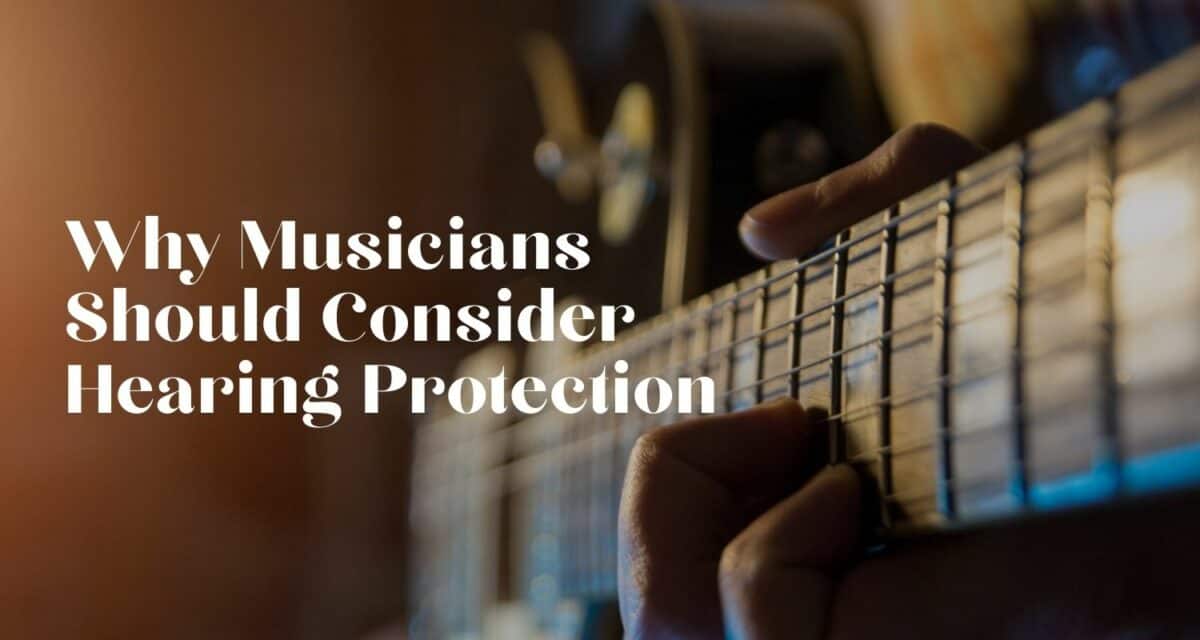Musicians rely on their hearing every day in their profession, but the condition in which they work could also put this very crucial sense at risk. Brian Johnson, the lead singer of the band AC/DC, was told to “stop touring immediately” by his doctors or risk developing complete hearing loss. Although this was a drastic warning, it showed what can happen if musicians don’t take measures to protect their hearing.
If you think that hearing loss only happens to members of stadium-filling bands, think again. In analyzing the health records of 7 million individuals between 2004 and 2008, a German study found that working musicians are approximately four times more likely than any other vocation to experience noise-induced hearing loss. They also had a 57 percent higher chance of suffering from tinnitus.
The danger of noise
As musicians, we have to accept and take measures to minimize the most avoidable cause of long-term damage — prolonged high-level exposure to sound. Multiple factors are involved in this type of hearing loss including volume, frequency distribution, how long you are exposed, genetics, and age.
The Occupational Health and Safety Administration (OSHA) has issued standards that require hearing protection for workers in noisy work environments (described as levels that can cause hearing damage, such as sounds reaching 85 decibels or higher over eight hours). At an exposure of 88dB, the limit is 4 hours according to the NIOSH guidelines. This drops to only 30 seconds at about 110dB.
Consider that the average quiet room is about 40dB, a hairdryer around 90dB, a lawnmower around 110dB, and standing in front of the speakers at a rock concert is 120dB. Noise levels reaching 85 decibels and above may be hazardous to human hearing, with risks rising as the volume increases. After eight hours of exposure, sound at 85 decibels can permanently damage your hearing while noise at 105 decibels can damage hearing within 5 minutes. Sounds at 120 decibels or higher, however, can damage the human ear instantly!
For music lovers, when seeing your favorite band in concert, you will last only 7 seconds before requiring hearing protection. That means you risk permanent hearing damage after 7 seconds of exposure to noise at a live concert. The exposure to sound by the cochlear hair cells causes structural damage and eventually, they will not be able to pick up the sound signals to send them to the hearing nerve.
Protection from noise exposure
Repeated exposure over time is destructive, and as such, every effort to mitigate this should be a priority for every musician or music lover. The good news is that even in the presence of damage, progression can be prevented by taking some immediate steps. The most important thing is to vigorously defend your ears. Musicians as well as music lovers can significantly lessen their risks of hearing loss and tinnitus through the use of appropriate hearing protection measures that preserve the sounds and harmony of the music.
Musicians’ earplugs
Musicians’ plugs are designed for musicians and music fans to use during loud concerts. Earplugs for the musician also come in a custom fit. Custom-fit earplugs for musicians are molded to fit your exact ear. They are unparalleled when it comes to hearing protection and comfort.
In-Ear Musician Monitors
When a musician is playing for large crowds, musician in-ear monitors are usually a sensible decision. In-ear monitors use electronics to find a balance; they shield the musician’s ears from the audience’s noise and any amplification devices, while still enabling them to accurately hear the vocals and music. Custom-fitted in-ear monitors can provide noise reduction between 25 decibels and 35 decibels while enabling musicians to listen to their music during live performances or recordings.
If you’re a working musician it makes sense to look after the equipment you use to help you make a living. That includes your ears. Likewise, music lovers will want to protect their hearing so they may enjoy live music for many years to come. Contact us today for more information about our full range of protective devices.


